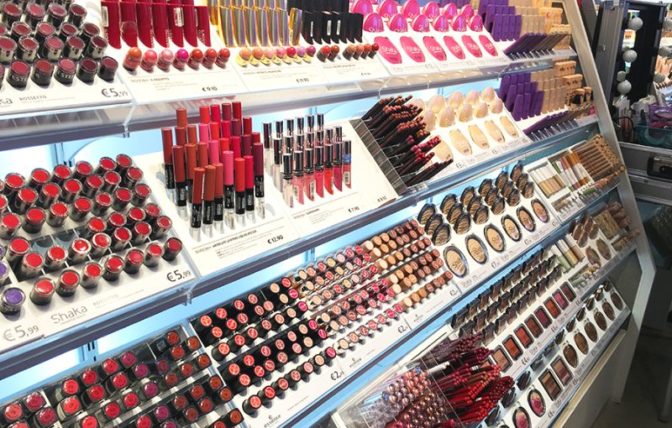
 "
"

 "
"

Winny Triswandhani, an avid user of Indonesian cosmetics, has recently switched from L’Oreal’s Maybelline New York brand to Esqa’s concealer, which she finds amazing for covering blemishes and dark circles. Apart from being great value for money, Winny appreciates that local brands like Esqa cater to Indonesia’s tropical climate and offer suitable shades for Indonesian skin tones.
For a long time, European and American brands like L’Oreal and P&G dominated Indonesia’s beauty care market. However, in recent years, Indonesian consumers, particularly the younger generation, have displayed a growing interest in local brands such as Esqa. These brands provide halal-certified products, adhering to Islamic law and excluding forbidden ingredients.
Keva Cosmetics International, the parent company of Esqa, specializes in halal makeup with vegan ingredients. In addition to online sales, the brand is available at prominent retailers like Indonesia’s Sociolla, France’s Sephora, and Hong Kong-based Watsons. Kezia Trihatmanto, co-founder of Esqa, emphasized the high demand for halal products among the majority-Muslim population and the brand’s commitment to global standards as a halal beauty brand.
Esqa has expanded its presence in Southeast Asia, including Vietnam, Singapore, and Malaysia, with plans to enter new markets soon. Another Indonesian brand, Rose All Day Cosmetics (RADC), has also gained significant popularity. RADC, founded in 2017, offers halal-certified and vegan cosmetics. The company’s revenue quadrupled in 2022 compared to the previous year and is expected to exceed last year’s sales by six times in 2023.
Tiffany Danielle, co-founder of RADC, stated that the motivation behind launching the brand in 2017 was the dominance of big international brands in the Indonesian beauty care market. She highlighted the pride consumers feel for locally founded brands and expressed the mission to disrupt the Indonesian beauty industry and eventually expand globally.
While startups like Esqa and RADC lead the way in the halal market, established companies are also actively participating. Paragon Technology and Innovation, a prominent Indonesian beauty company, offers affordable halal-compliant cosmetics and skincare products in both physical stores and e-commerce platforms. Western brands still dominate the preferences of affluent Indonesian consumers, but their market shares have been declining as local brands gain traction.
According to Euromonitor International, in 2022, Unilever held 22.5% of the Indonesian market, followed by P&G at 7.6% and L’Oreal at 5.4%. However, the combined market share of these three companies decreased from 42.6% in 2016 to 35.5%. In contrast, Paragon Technology and Innovation’s market share rose to 3.1% in 2022 from 1.9% in 2016.
In 2014, Indonesia enacted a law mandating halal certification for a wide range of consumer products. While halal certification for cosmetics will be required by 2026, companies will still be allowed to sell non-halal products if explicitly labeled. Global companies have concerns about the cost of establishing dedicated facilities for halal production, which hinders their development of halal products in Indonesia.